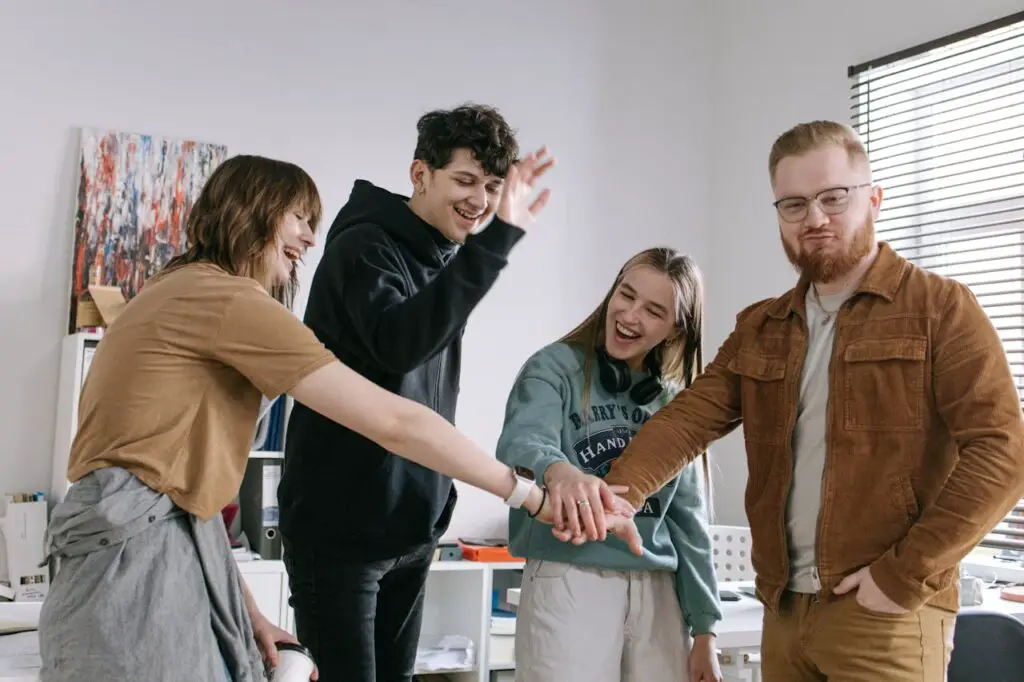14 Millennial Phrases Everyone Is Sick Of Hearing

Millennials have gifted the world with memes, viral trends, and a quirky sense of humor that transformed the way we communicate online. But for every genius moment of internet culture, there are a dozen phrases that have been dragged out way too long. Some started out clever, others were funny for a hot minute, and a few were never that great to begin with—but all of them have overstayed their welcome. Whether you’re scrolling through social media or sitting through yet another work Zoom meeting, chances are you’ve heard these expressions one too many times. If you find yourself cringing at your own vocabulary or rolling your eyes when your friend says “I can’t even,” you’re not alone. Here are 14 millennial catchphrases that desperately need to disappear before Gen Z disowns us all.
1. “Adulting”

What was once a funny, tongue-in-cheek way to describe grown-up responsibilities has now become a tired cliché. Saying “I’m adulting today” to announce you paid a bill or did laundry just makes adulthood sound like some kind of part-time gig instead of, well, life. At this point, “adulting” feels like a badge millennials wear to avoid fully embracing adulthood. Let’s retire it and just call it what it is—being responsible.
2. “I Can’t Even”

This phrase was born from internet culture’s love of exaggeration and emotional chaos, but now it’s just a meaningless cop-out. Whether it’s used to describe a cute puppy or a meltdown over spilling coffee, “I can’t even” has become a placeholder for any and all emotions. If you can’t even… what? Finish the thought. Express the feeling. Communicate like a functioning adult.
3. “Sorry Not Sorry”

Equal parts sassy and passive-aggressive, this phrase pretends to be bold but usually ends up sounding smug or immature. It’s often used to disguise an insult or selfish behavior under the veil of faux empowerment. The reality is, you’re either sorry or you’re not—there’s no need to straddle both sides. Let’s move on from this overused line and learn how to apologize—or not—like grown-ups.
4. “Literally Dying”

This one is a grammar purist’s worst nightmare. “Literally” means something actually happened, so saying you’re “literally dying” from laughter or embarrassment is not only incorrect but incredibly melodramatic. It might have been funny the first time, but now it’s just hyperbole fatigue. There are plenty of ways to express excitement or disbelief without pretending to keel over.
5. “Yas Queen”

Originally a joyful cheer rooted in drag culture, “Yas Queen” was co-opted by mainstream internet culture and ultimately worn into the ground. At one point, it was a way to hype someone up with flair. Now, it’s slapped on every selfie, new haircut, or brunch post with a tone that feels more forced than fabulous. It’s time to leave this one in the glittery vault of internet history.
6. “Because Reasons”

“Because reasons” was once a clever way to indicate you were making a decision without feeling the need to explain yourself. But now, it just comes off as dismissive or intellectually lazy. Instead of using it to avoid having an opinion, how about just offering one? If you don’t have a reason, that’s fine too. Just don’t pretend vagueness is a personality.
7. “I Did a Thing”

This one needs to go for two reasons: it’s vague and it’s a thinly veiled cry for attention. People often use it to hint at something big—like quitting a job, buying a house, or getting engaged—without just saying what happened. It’s the social media equivalent of fishing for questions. Be proud of your accomplishments. Say what you did. You don’t need to sugarcoat it with mystery.
8. “Can We Not”

Once a quick and sassy way to shut down annoying behavior, “Can we not” has become just another dismissive catchphrase that lacks substance. It’s overused as a blanket statement to express frustration without actually offering any constructive input. It also has a vague superiority complex that can be off-putting. If something bothers you, say why. Don’t hide behind this half-hearted complaint.
9. “So Done”

Whether it’s your job, your ex, or the state of the world, saying you’re “so done” used to feel like a dramatic mic drop. Now it just feels like emotional shorthand for people who are too tired to explain themselves. It’s vague, non-committal, and increasingly unhelpful. We’re all “so done” with a lot of things, but maybe it’s time we start being more specific about what and why.
10. “All the Feels”

This one was charming when it first arrived on the scene, a quick way to express emotional overload in response to a cute video or touching story. But over time, “all the feels” lost its emotional depth and became an overused label for any reaction at all. The phrase is now so watered down it could apply to literally anything. If you’re moved, describe it. Give your feelings the credit they deserve.
11. “Treat Yo’ Self”

Coined by the iconic comedy Parks and Recreation, “Treat yo’ self” once represented a fun, carefree attitude toward indulgence. But it’s become an excuse for reckless spending and self-justified overindulgence. Not every impulse buy needs to be a moment of empowerment. Enjoy your treats, sure—but maybe don’t post every overpriced coffee under this outdated banner of faux self-love.
12. “Zero F***s Given”

The more you say you don’t care, the more it usually looks like you do. “Zero fs given” was meant to signal confidence and apathy toward judgment, but now it often comes across as defensive and try-hard. There’s something far more powerful about quiet confidence than loudly announcing your lack of interest. Besides, if you truly had zero fs to give, you probably wouldn’t be posting about it.
13. “Shook”

Feeling surprised? Go ahead and say that. But unless you’re actually trembling in disbelief, there’s no need to claim you’re “shook.” The term has been so widely used—applied to anything from spilled tea to celebrity gossip—that it now means virtually nothing. It’s another millennial exaggeration that needs to be scaled back for the sake of clearer, more honest communication.
14. “That’s a Mood”

Whether it’s a sleepy dog wrapped in a blanket or someone glaring into the void, millennials love to label random images or feelings as “a mood.” It started as a way to relate to others with a quick shorthand, but it’s become a lazy substitute for real conversation. Everything is not a mood. If you’re relating to something, try explaining why instead of relying on this worn-out catchphrase.
Final Thoughts

There’s no denying that millennials brought a unique voice to modern communication—fun, quirky, and relatable in its prime. But language evolves, and even the most iconic phrases eventually lose their edge. Many of the expressions on this list started out clever, but constant repetition stripped them of their charm. Clinging to outdated slang doesn’t make you relatable—it makes you sound like a meme from 2014. So the next time you’re tempted to drop a “yas queen” or “I did a thing,” consider whether it still lands or just lands flat. After all, real expression comes from originality, not just recycling what was once cool.
Leave a Reply